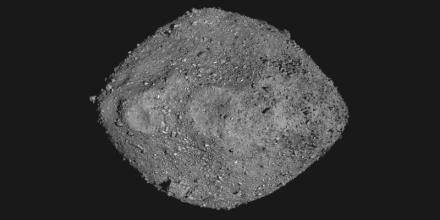NASA's epic return with pristine asteroid samples
23.09.2023 posted by Admin

A NASA spacecraft is set to complete its round-trip journey to an asteroid this weekend, returning to Earth after a seven-year expedition to retrieve pristine rock specimens from an alien world, potentially shedding light on the origins of life.
The touchdown, scheduled for Sunday at 8:55 am local time in Utah (10:55 am EDT or 14:55 UTC), marks the culmination of NASA's OSIRIS-REx mission, which covered a distance of 4.4 billion miles (7.1 billion kilometers). Following the landing, a meticulously planned sequence of events will commence to secure the asteroid sample capsule, transport it to NASA's Johnson Space Center in Houston, and finally unveil its contents.
"The spacecraft trajectory and performance have just been spot on," commented Sandra Freund, OSIRIS-REx's program manager at Lockheed Martin, the organization responsible for building and operating the spacecraft on NASA's behalf. "We have just a few remaining steps before we have Bennu samples on the ground."
This historic mission, led by Dante Lauretta, the mission's principal investigator based at the University of Arizona, has been in the making for nearly two decades. The selection of OSIRIS-REx by NASA in 2011 marked the culmination of a seven-year process involving brainstorming, proposals, and reviews that began in 2004.
OSIRIS-REx, an acronym for Origins, Spectral Interpretation, Resource Identification-Regolith Explorer, was designed to bring asteroid material back to Earth for in-depth analysis in research laboratories, surpassing the capabilities of even the most advanced scientific instruments onboard spacecraft.
The mission's significance lies in its quest to unlock the mysteries of life's origins. Bennu, the chosen target, is believed to be a relic from the early days of the Solar System and could contain vital clues about the beginnings of life on Earth. Scientists hope that the samples retrieved from Bennu may contain the seeds of life that asteroids delivered to our planet, sparking biological evolution and ultimately leading to the existence of life as we know it today.
The OSIRIS-REx spacecraft executed a touch-and-go landing on Bennu in October 2020, collecting material by firing compressed gas into the asteroid's surface. However, the asteroid's material turned out to be less dense than anticipated, creating unexpected challenges during the sampling operation.
Nevertheless, the mission successfully gathered around 250 grams of material, potentially comprising amino acids and other organic molecules that could provide valuable insights into the origin of life. This pristine sample, encased in an armored capsule, will undergo thorough analysis by scientists worldwide, with some preserved for future generations of researchers equipped with advanced instruments.
The spacecraft is now set to return the sample capsule to Earth, where it will endure a fiery re-entry into Earth's atmosphere, followed by a parachute-assisted descent and landing in the Utah desert. A carefully orchestrated process will then ensure the protection of the sample from terrestrial contamination.
Despite the anticipation and meticulous planning, there remains a degree of uncertainty surrounding the mission's success, with potential challenges like parachute deployment and the risk of a government shutdown looming on the horizon. Nonetheless, scientists and space enthusiasts eagerly await the moment when the sample from an alien world reaches Earth, potentially unlocking profound insights into the origins of life.